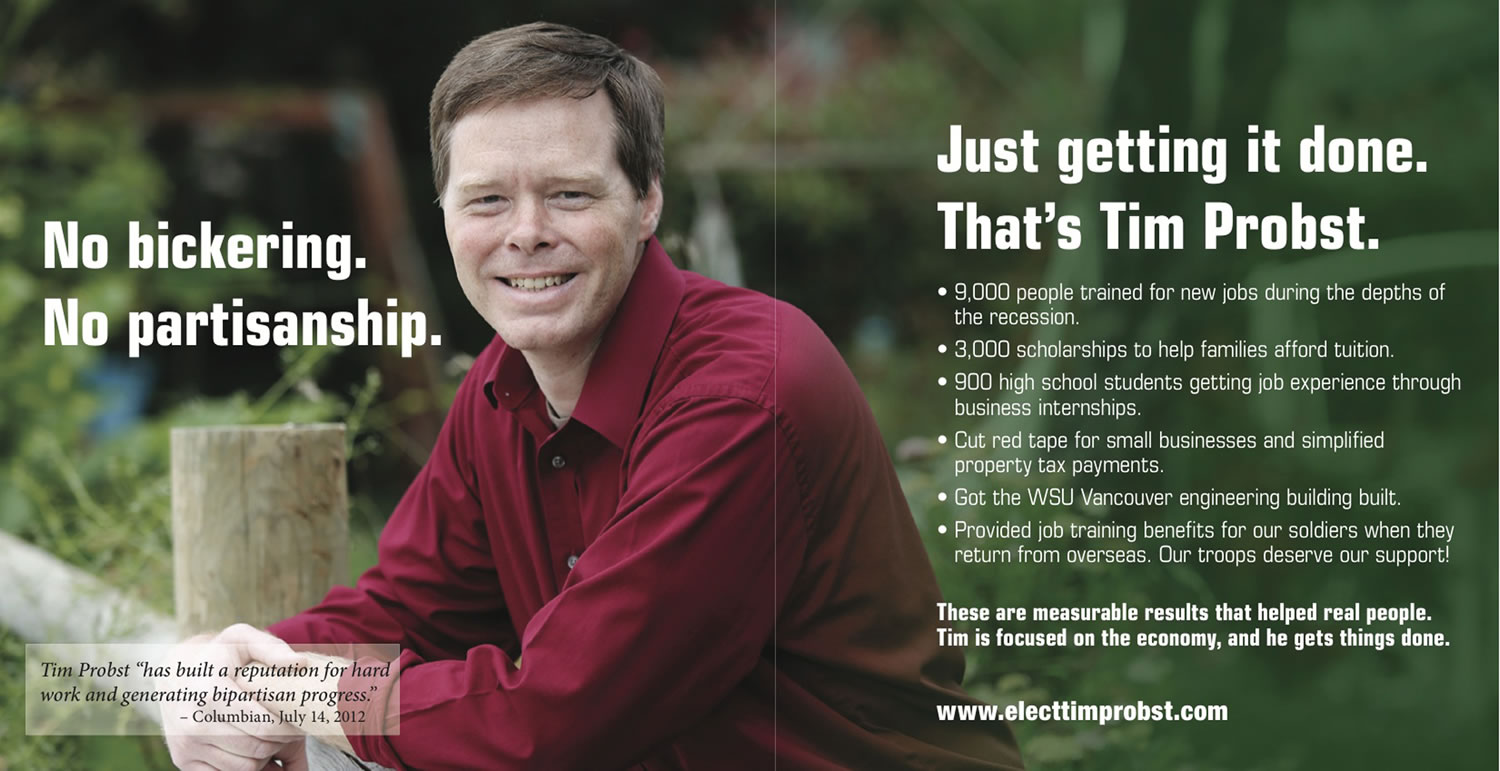The political mail Clark County residents are receiving from lawmakers at this stage of the 2012 elections are most likely paid for by a lawmaker’s private campaign treasury, meaning they aren’t paid for with taxpayer money.
That also means there are few regulations on what the candidates can write on them. When reading campaign mailers, experts advise: let the voter beware.
Even lies or misleading information in campaign advertisements are almost always legal and protected as political speech, according to state law. Candidates can get into hot water with the Washington State Public Disclosure Commission if they lie about their opponent in a slanderous way, but proving that political speech is slander is a nearly impossible task.
“Candidates are usually public figures, which means that it’s much harder to bring a successful libel or slander action against them,” University of Washington law professor Hugh Spitzer said in a recent interview. “Political speech is protected, and historically our courts have protected the rights of citizens to say what they think about political candidates.”
The Public Disclosure Commission is able to enforce the state’s political advertising laws, but to penalize someone for slander against a candidate, a high threshold of proof must be met.
In Washington state, the PDC would take action against someone only if:
• The statement in question is one that can be determined as true or false, as opposed to an opinion.
• The statement was made in a political ad, as opposed to in a speech or a quote in a newspaper.
• The person making the statement knew the information was false.
• The statement caused significant harm to the victim’s occupation or livelihood.
And all of those assertions must be backed up with clear and convincing evidence, said Tony Perkins, the PDC’s lead political finances specialist.
Even on the rare occasion when a candidate or ballot measure advertisement has been disciplined by the PDC, the commission’s decision has been overruled by the state Supreme Court, which often errs on the side of protecting free speech.
“It’s not an easy law to enforce,” Perkins said.
Some candidates this election season have signed the League of Women Voters of Clark County’s campaign pledge, promising that they will not produce advertisements that unfairly attack an opponent or lie about a candidate’s record or policies. They also promise to refrain from personal attacks and denounce any independent political group that unfairly attacks the opposition.
The campaign pledge is not enforceable, but it allows members of media and the public to hold the candidates who have signed the pledge to a higher standard.




